Sydney food banks reporting record numbers, as cost-of-living crisis continues
One picture shows how communities across all areas of Sydney have struggled with the growing cost-of-living.
In the past year, the Community Cafe in Sydney’s southwest suburb of Sadlier has fallen victim to seven break ins.
Despite the food outreach program offering hot meals, clothes, homewares and grocery products for free, the organisation founder and local mum Kirsty Parkes has found the roller door bashed in, or the locks cut on the door.
She says it shows the evidence of the “desperation” felt by her community, pushed to the edge by a suffocating cost-of-living crisis.
“Everything in our place is free. If you break into a charity and steal a flipping jacket, you are desperate,” she said.
“I look at that and go: ‘OK, this is where we need to be. Obviously we are doing the right thing by being here’.”
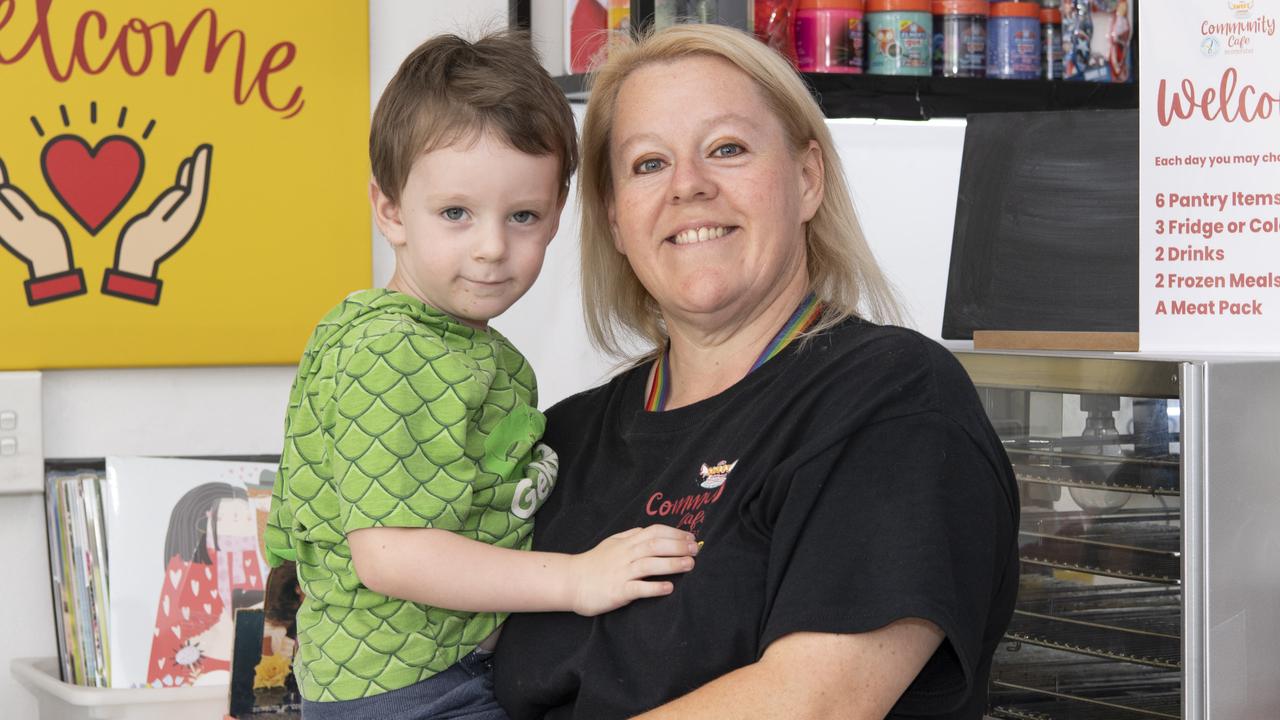
Sadlier, and its surrounding suburbs of Miller, Liverpool, Busby and Ashcroft, are among the poorest suburbs in Sydney, and this year Ms Parkes has seen demand for her services reach new heights.
Community Cafe began during the Covid-19 lockdown, when south west Sydney were subjected to the state’s harshest lockdown, before Ms Parkes opened a physical outpost in 2022.
Back then it was servicing about 100 to 150 people at a weekly meal service. Now operating four days a week, the charity has hit “breaking point” often helping 300 a day, and peaking at 337 ‘customers’ in April.
“We are where we are is because these people struggled beforer, and now there’s an even bigger struggle,” she said.
“Desperation makes you do stupid things, and makes you do something you normally wouldn’t because you’re pushed to that point.”
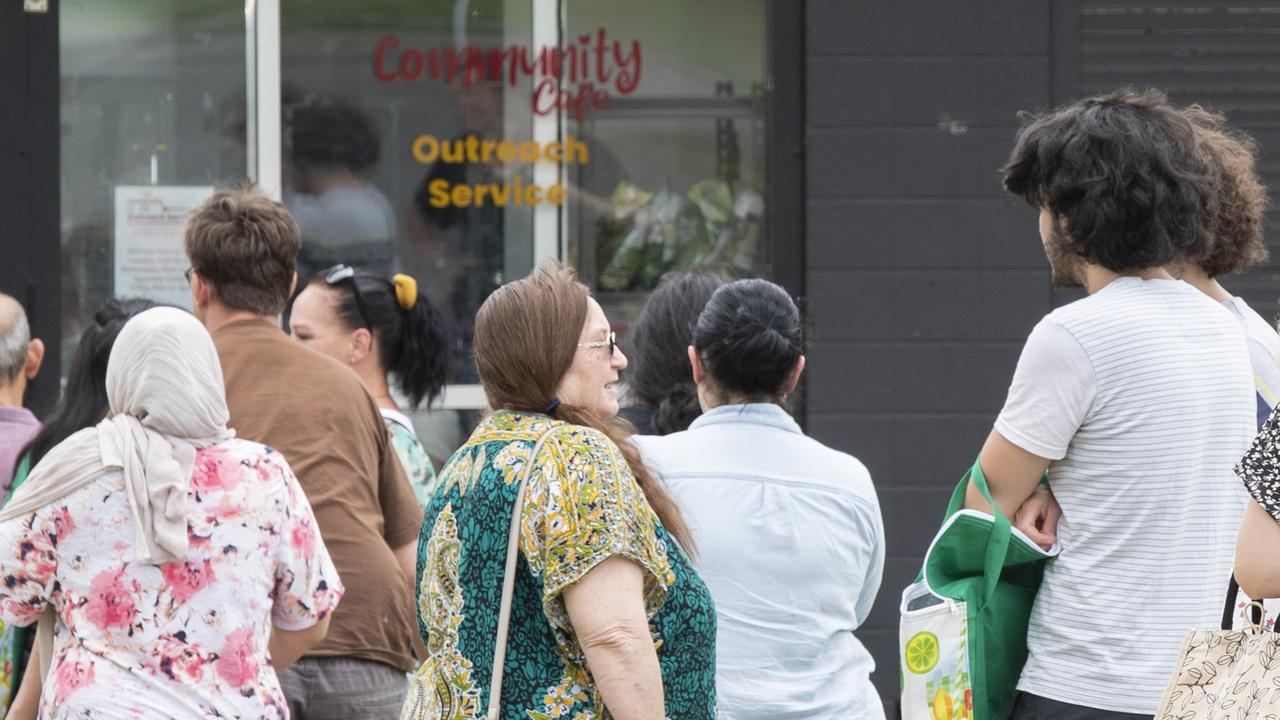
As it nears Christmas, Ms Parkes said she’s seen people “fight” over Christmas decorations, with shops in the area still notably stocked with Christmas decorations, whereas they’d normally be sold out.
“A lot of people are saying: ‘We’re not going to do a Christmas tree this year, we can’t afford it’”
“People are fighting, they’re arguing, they’re yelling at each other, they’re pushing each other,” she said.
“It’s absolutely unacceptable behaviour but it’s desperation – it’s not that these people are nasty, they’re desperate.”
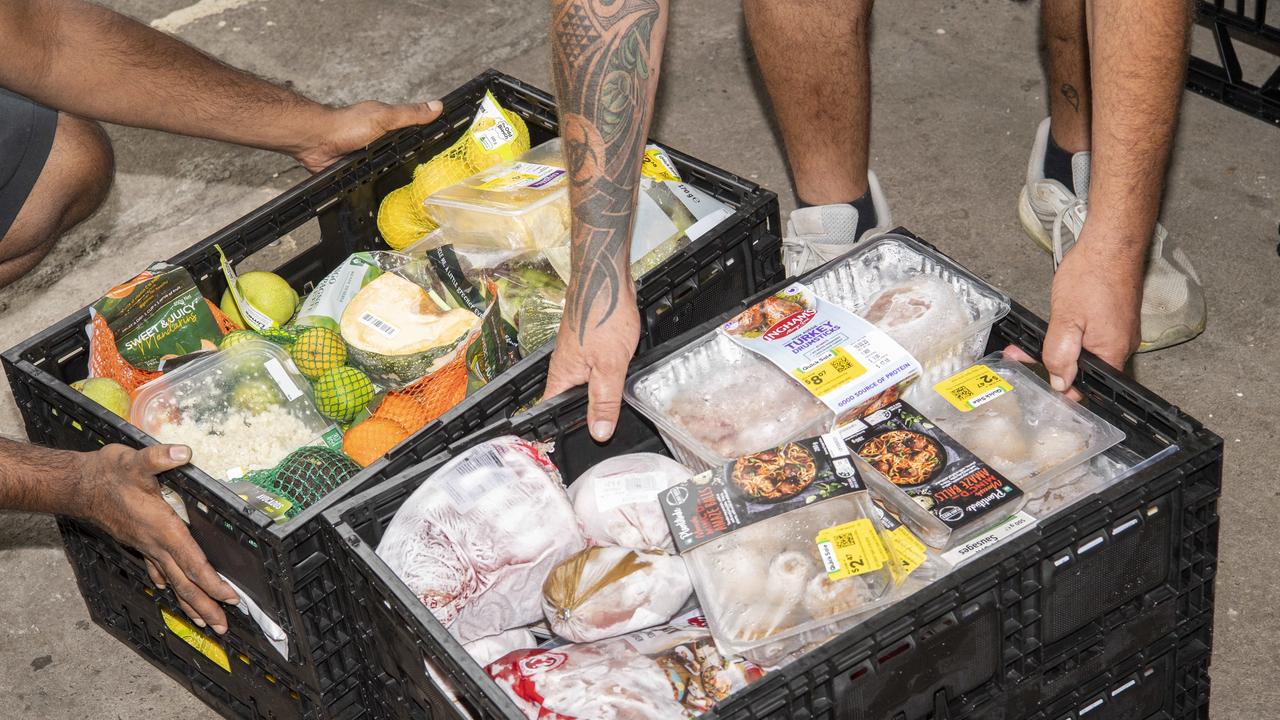
35.6km away, an inner-city food outreach program tells a similar story.
OzHarvest’s Waterloo Market manager Zuzana Droppa said 2023 has seen the free-food service hit with unprecedented demand.
Last year, the free food program serviced 85,000, this year they’re expecting to hit 102,000, with demand expected to increase closer to the end of the year.
“So Tuesday was the first day we open after being closed on Sunday and Monday, and we served 521 customers,” she said.
“We didn’t see this in the first half of the year at all. The need is increasing, and the range of people we see has changed.”
“We’re increasingly seeing mothers with babies and children and many of their partners work a full-time job, and they’re still unable to provide for their family. The price of everything is going up, and people are not being paid proportionally.”
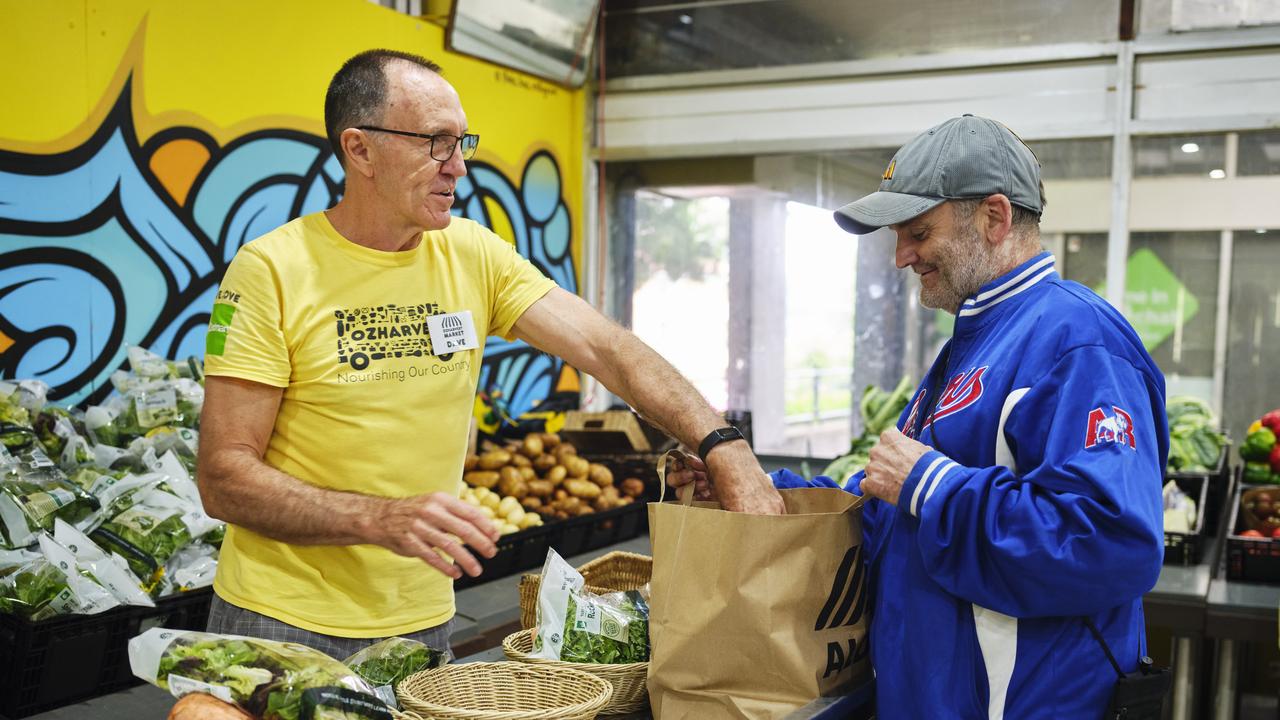
The proportion of young customers has also increased, with people unable to make ends meet with their casual or hospitality jobs. Others have been forced to use charities after having their shifts unexpectedly cancelled.
According to the 2023 Foodbank Hunger Report 36 per cent of Australian households have experienced moderate to severe food insecurity in the past year, an increase of 3 per cent year-on-year.
As can be expected, 79 per cent said increased and high living expenses was the reason for their food insecurity. In 2022, this figure was reported as 64 per cent.
Speaking to customers, Ms Droppa says the financial pressure has increased as people’s savings from Covid – if they had them to begin with – have been used up. The consecutive interest rises have increased strain for renters and homeowners alike, with food prices also inflating.
“What we’re hearing is that many of the generic brands at the supermarket have sold out,” said Ms Droppa.
“When people only have a limited budget for things like bread, pasta, and milk, they want to go for the home brand.
“If its sold out, they’re either straining their budget buying the higher-priced item, or they’re just going without.”
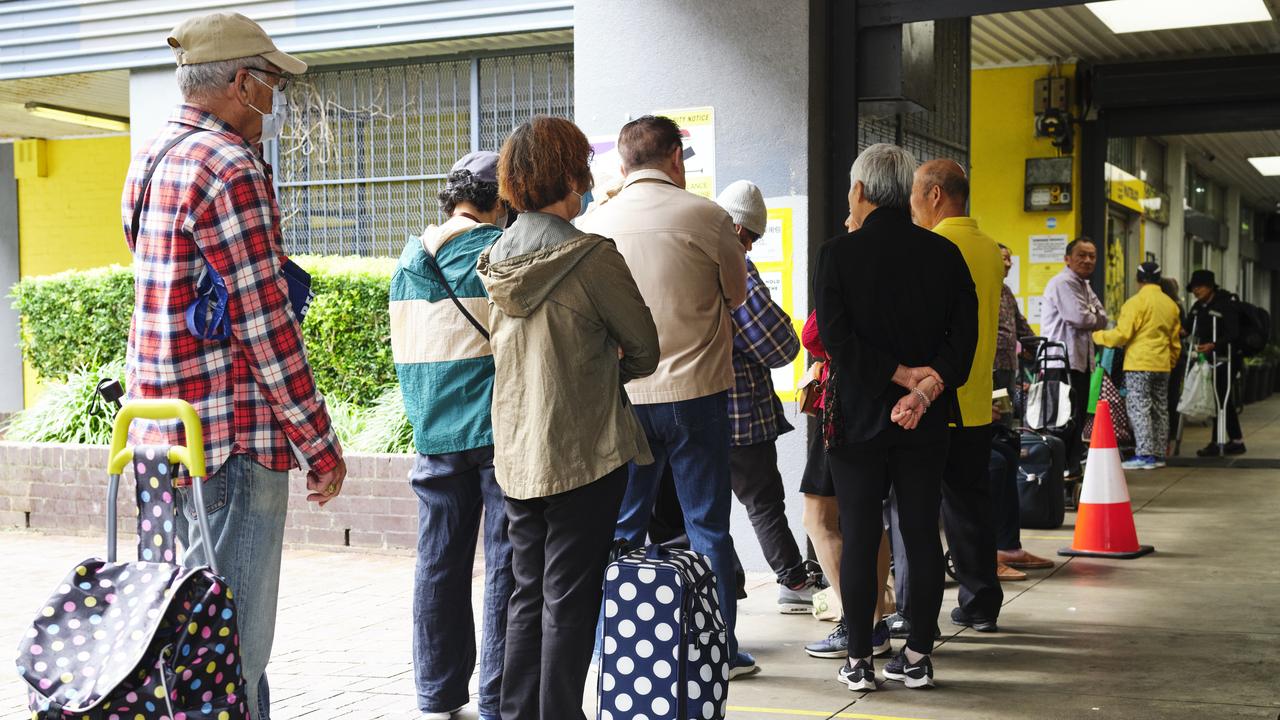
Ahead of the holiday season, both Ms Droppa and Ms Parkes have issued a plea for people to support their local food banks, especially by donating pantry, or non-perishable items like tinned food.
“That’s the biggest wish we have at the moment,” said Ms Parkes
“We are just struggling to cope with the sheer amount of stuff going through the doors because when you do the numbers at that many people a day six pantry items, three fresh items, two frozen meat packs, two frozen meals – that’s a lot of food.”



